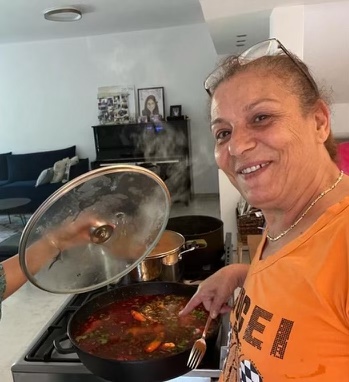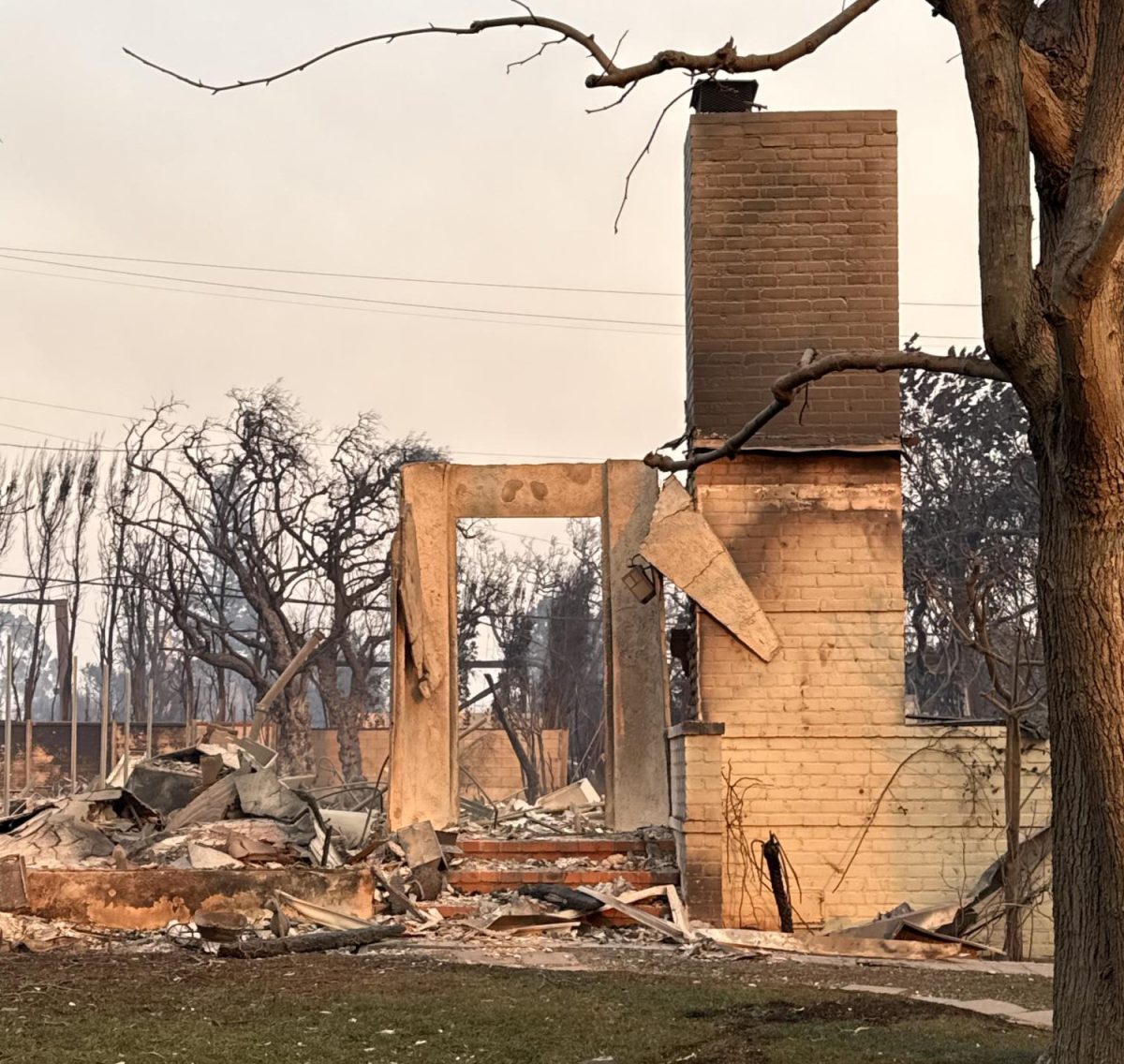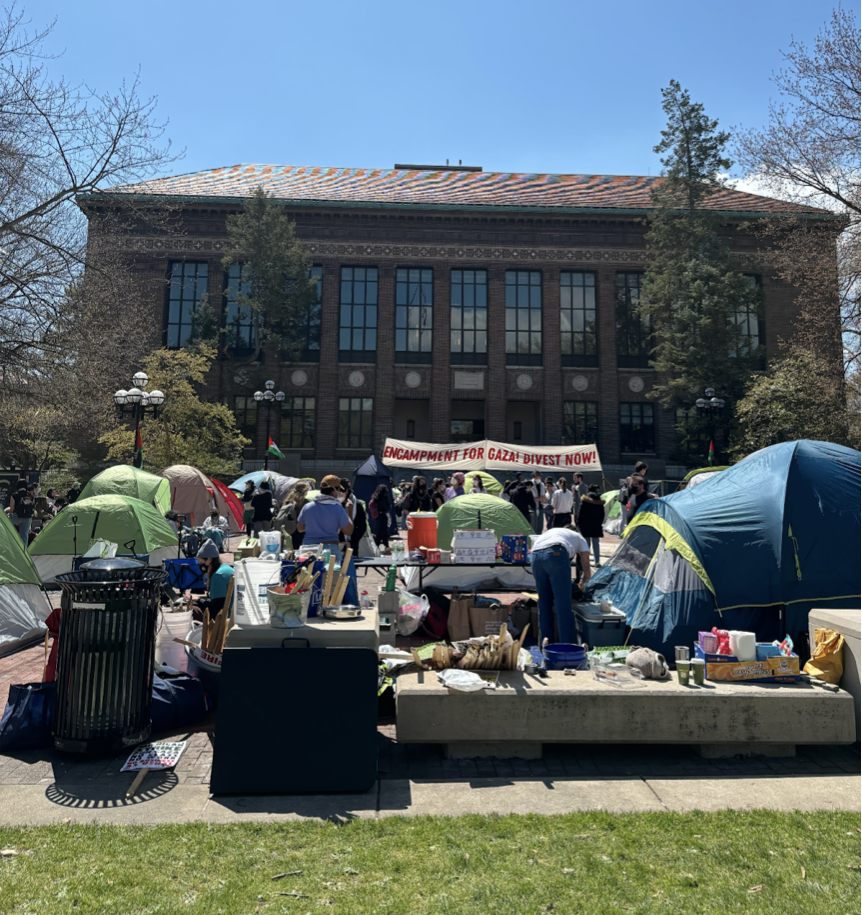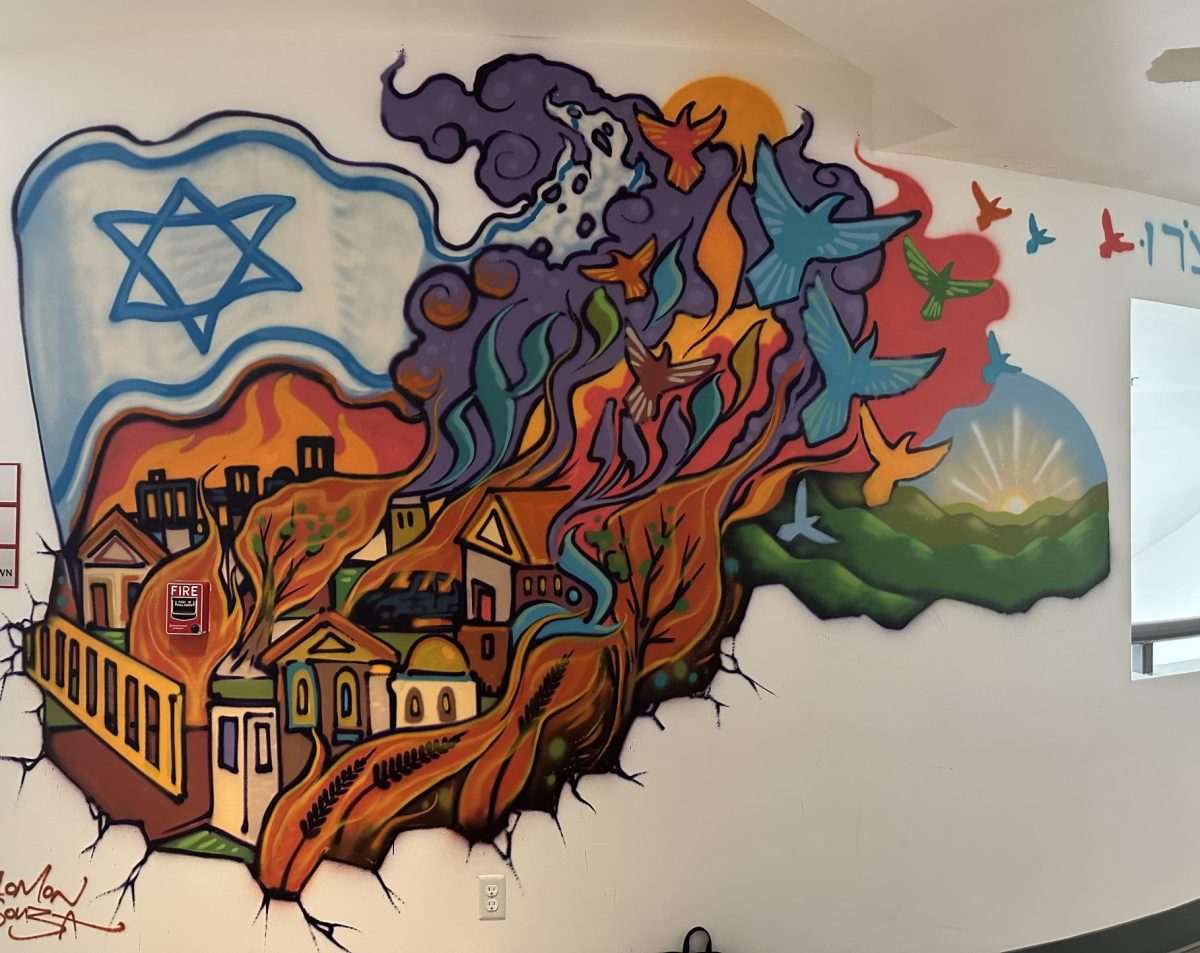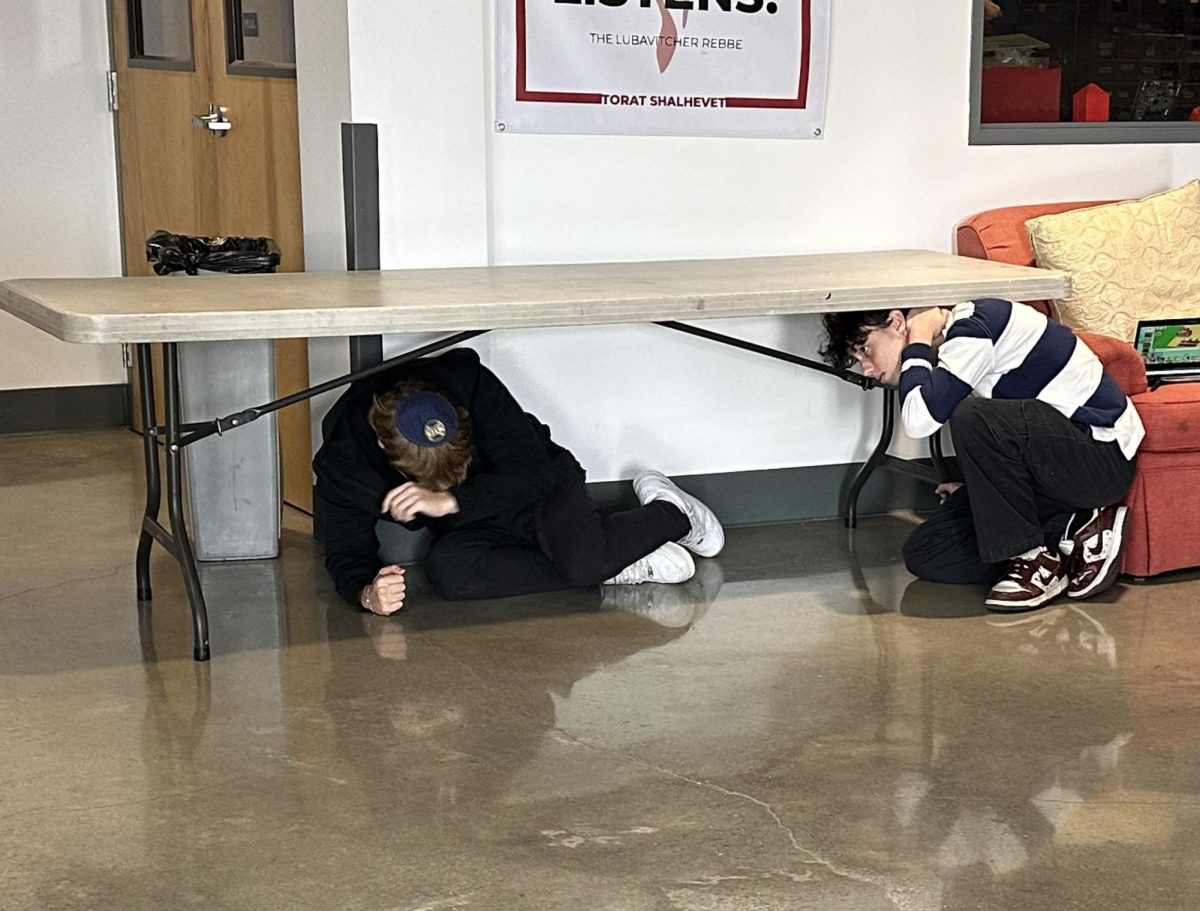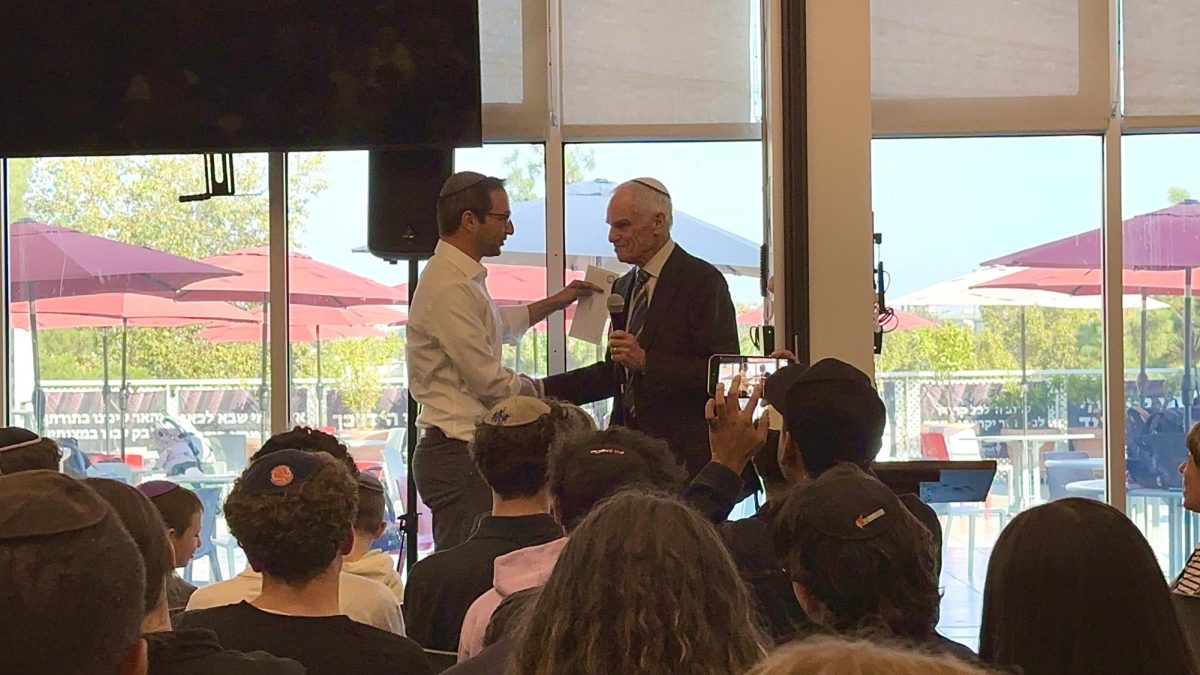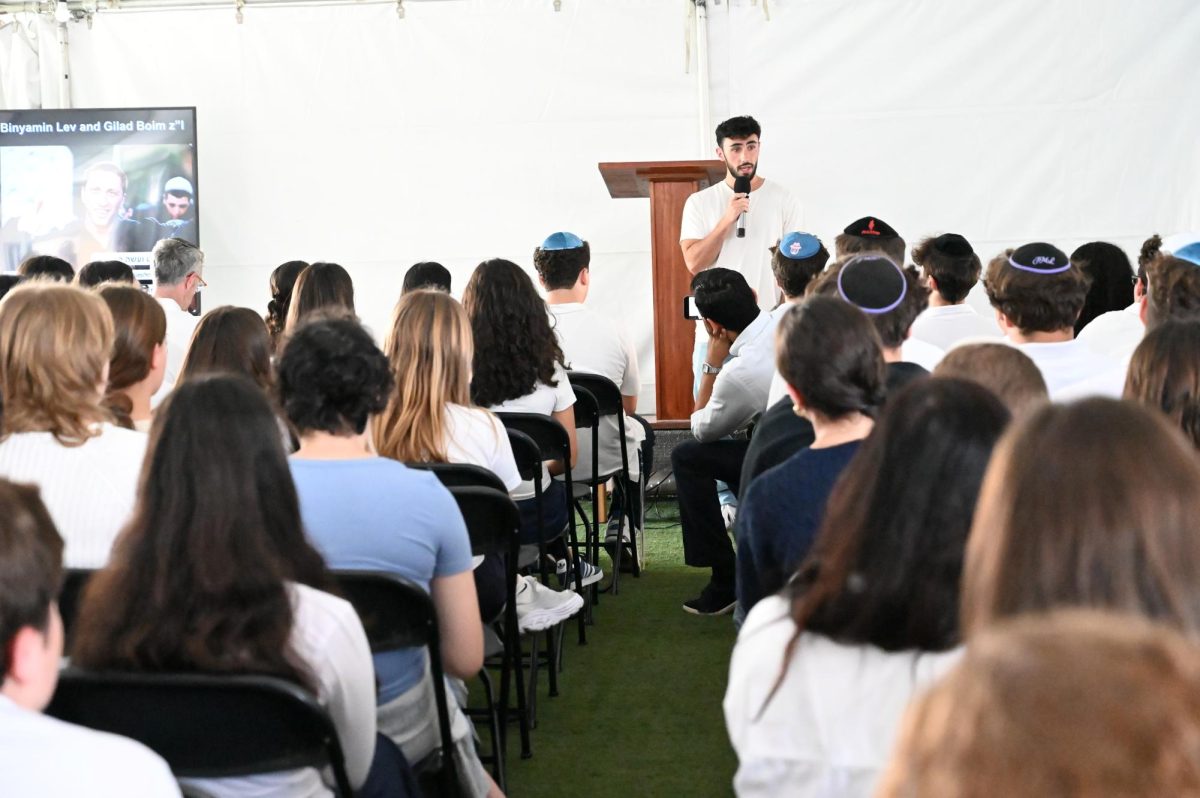For six months, Mrs. Batya Ammar has been living at the Renaissance Hotel in Tel Aviv.
In Kiryat Shmona, the northernmost city in Israel, Mrs. Ammar worked as an elementary school teacher with more than 70 students. When she saw that there were hundreds of children staying in her hotel in Tel Aviv, she contacted a friend in Kiryat Shmona to help her start a school in the hotel.
Over the months, she and the Renaissance Sales Manager, Orit Cordoba-Core, coordinated hundreds of books, games and other activities to be sent to the hotel from Israeli and American donations for the children to use. Mrs. Ammar said being busy and feeling that she was helping the children around her is what got her through the first few weeks of displacement.
“I wanted to get the children to do a mental examination on themselves,” said Mrs. Ammar. “To think through and process their situation through writing and drawing.”
Mrs. Ammar is one of 200,000 Israelis who have spent time in displacement since the start of the war on Oct. 7. According to the Times of Israel, they have been dispersed largely across Central Israel staying in hotels and other available living places.
Eventually, Mrs. Ammar and those helping her found a place for this school to run daily outside of the Renaissance Hotel. With the help of Tel Aviv University and the Ministry of Education, they were able to collect enough chairs, tables, books, pencils and supplies to establish a temporary school on the Tel Aviv University campus.
“These are kids who went through trauma and left their homes,” said Mrs. Ammar. “We just want to give them a safe place in one that’s unfamiliar.”
As of May 9, in Kiryat Shmona, there are few people living or returning to their homes there as the war rages on, she said. However, on Sunday, May 5, due to a Hezbollah rocket attack on the city, from the over 100 rockets launched, 2 people were wounded, and over seven buildings were destroyed, along with a Magen David Adom intensive care ambulance.
According to Israeli officials, the conflict with Hezbollah is expected to continue and heighten through the summer and outlive the current operation in Gaza. Israeli Defense Minister Yoav Gallant stated that Israel would not tolerate continuous Hezbollah attacks.
In addition to helping Mrs. Ammar, Mrs. Cordoba-Core has taken on a larger role in helping evacuees since the war started.
Before the war, she had worked in tourism and publicity for the hotel. By February she was barely leaving her office, her work almost entirely centered around helping the evacuees from the North and ensuring they had a home-like experience there.
“You cannot be indifferent to this situation,” said Mrs. Cordoba-Core. “The children are all changing their education and their friends, and it’s hard for me to see them like this.”
At the start of the evacuation process, the Municipality of Tel Aviv asked her to coordinate rooming and the daily schedule for the displaced people.
“Until it’s safe for them to go home, we will try to do our best to give these people a sense of comfort,” said Mrs. Cordoba-Core.
Many other Israelis are doing the same, whether or not it’s through official channels. One of them is Matthew Bain, who attended Shalhevet until 11th grade when his family made aliyah in 2008.
Matthew is now a real estate agent in Central Israel, and since Oct. 7 has coordinated some of his clients’ properties to be used as housing for displaced people – the majority from Northern Israel – instead of for sale or lease.
Matthew has access to a Google Sheet which he uses to establish contact with the displaced families.
“A lot of real estate agents came together, located empty properties, and set them up in the course of like a day,” he said.
In Ra’anana, where he lives, Matthew helped coordinate the remodeling of a home on a rushed schedule so displaced people could move in. He said electricians and handymen were coming in and out and installing new furniture and decor in the house for days so a total of 11 displaced people could live in it. Through WhatsApp groups, he gained access to donated furniture.
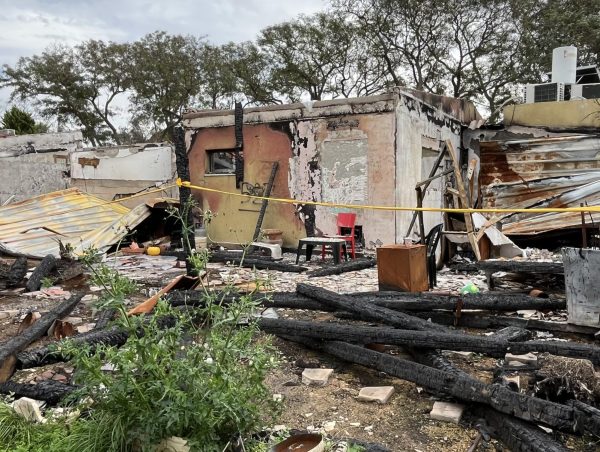
Another client of his in Ramat Hasharon has been housing evacuees in his own childhood home – since the start of the war.
Real estate, he said, has allowed him to play his part in helping those who lost their homes.
“Real estate is my area of expertise,” said Matthew. “I’m using it in the best way I can to help people in need.”
In the United States, in Teaneck, New Jersey, Israeli-American Mrs. Fran Berg co-runs a volunteer donation program called Luggage4Israel. This organization collects donations from across the country to be sent to IDF soldiers and displaced civilians.
A friend of Mrs. Berg’s, Yael Schwartz, lives in a neighborhood of many hotels in Jerusalem, where Mrs. Berg was born and raised for her first 16 years. While on the phone with Mrs. Schwartz, Mrs. Berg informed her of multiple hotels’ need for aid for the thousands of displaced people who were being sheltered there.
“We had warehouses full of duffle bags of donations that had just been sitting there,” said Mrs. Berg. “Now, I had somewhere to ship them too.”
Today, she said Luggage4Israel is shipping to more than 17 different hotels in Netanya, Haifa and Eilat.
“I speak to the people in charge, get a list of what’s needed, and then prepare for a few days exactly what they need and the exact amounts of it,” said Mrs. Berg.
For displaced families, Mrs. Berg said they have been collecting mostly toiletries like wipes, pampers, toothbrushes and toothpaste, and also clothing and shoes. She said multiple stores in Bergen County donated between 30 and 40 boxes filled with their inventory from last season.
“Now, my house is always full of boxes, my car full of bags,” said Mrs. Berg. “But it’s such a fulfilling thing for me to do, to see the pictures sent from Israel of all the people we are helping.”
After doing an inventory check and listing what is needed, Mrs. Berg sent a link for affordable needs for the displaced people to a volunteer WhatsApp group chat, which has over 600 people.
In order to get the bags to Israel, Mrs. Berg said she usually sends them to people who are traveling to Israel. To cover the $110 baggage fee, or the $50 option if it gets approved as a “donation bag,” many travelers have volunteered to cover it themselves or other community volunteers have pitched in.
Once the bags get to Israel, Mrs. Berg’s close friend in Jerusalem Mrs. Miri Lavie helps coordinate with pick-up and transportation to the hotels that the bags are intended for.
“Most hotels have someone in charge of this since the war, which I coordinate with to get the people they’re sheltering anything they need,” said Mrs. Berg.
Mrs. Lavie works as a travel agent in Israel and has numerous connections with hotels across Israel. She also works with multiple volunteer organizations, which were each some of the first organizations in Israel that helped displaced people she said.
Mrs. Lavie said that she is currently mainly working with the Ramada Renaissance Hotel in Jerusalem, which is harboring mainly evacuees from Sderot and a small number from Kiryat Shmona.
“Whatever people wanted, in two or three days, it was already here,” said Mrs. Lavie. “Clothes, shoes, toiletries, everything.”
Mrs. Lavie said she and the organizations she works for first contacted the Ramada for the Sderot evacuees because there had been multiple people who needed mehadrin meals – are meals of the most stringent level of kashrut (kosher), which the Ramada provided.
After the 1,500 evacuees got settled in, Mrs. Lavie started to plan activities and events for the children.
“All of the halls in the hotel were turned upside down,” said Mrs. Lavie. “They all became kindergartens and schools.”
Mrs. Lavie said that her main goal for the evacuees was to build their confidence back and establish for them a sense of routine. She said she has been in close contact with the Municipality of Sderot through her organization to ensure that they are comfortable.
“I have had people calling me day and night to volunteer and help out in any way possible, ” said Mrs. Lavi. “The unity, it has really been amazing and I hope it can continue after the war.”
One of the Sderot evacuees at the Ramada Renaissance is Mrs. Revital Adas.
On Monday, Oct. 9, Mrs. Adas and her husband went to stay with their son in Shomria, a kibbutz along the border of the West Bank in Southern Israel. After a week on the kibbutz, the City Council of Sderot coordinated for them to stay in the Ramada in Jerusalem.
“I barely brought anything with me to the hotel from Sderot,” said Mrs. Adas said in an interview. “I am so thankful for the Americans because everything I have needed they have donated to us.”
Mrs. Adas said she enjoys speaking with new friends she’s made at the hotel, many from Kiryat Shmona. She visits her home in Sderot when possible.
“Whenever the door opens, we get startled,” said Mrs. Adas. “We are always assuming it’s terrorists.”
On Oct. 7, Mrs. Adas entered her home’s bomb shelter when she was alerted of the terrorist infiltration and stayed there for the remainder of the day. She said that she had never felt so helpless and scared in her own home, where she has lived since moving from Morocco in 1961.
“There were terrorists all around the city,” said Mrs. Adas. “We had no idea how many people were killed and it was absolute chaos.”
According to the Times of Israel, six months after the start of the war 70% of Southern Israel evacuees have now returned to their prior homes.
Since evacuating her Sderot home on Oct. 8, Mrs. Cohen Sasson has been staying in different hostels across Central Israel. The Brous family in Ra’anana – cousins of Shalhevet freshman Levi and senior Sami Brous-Light – has been granting access to their kitchen to Mrs. Cohen Sasson to cook for her family and for anyone else in need.
Mrs. Cohen Sasson said that she wants to return home as soon as possible, but doesn’t feel it’s safe to do so. The government told her they expect her to be able to return home by June 30.
The morning of Oct. 7, which was also Shabbat, Mrs. Cohen Sasson’s son Noam received a call from his brother-in-law, an IDF soldier stationed near Gaza. Since he is religiously observant, he doesn’t normally turn his phone on during Shabbat, so when he called, Mrs. Cohen Sasson knew something was wrong.
“Where’s Dad?” he said. “Run downstairs, look around the entire outside of the house, there are terrorists.”
As the first missile siren sounded, Mrs. Cohen Sasson and her son ran to the bomb shelter. In Sderot, as a Gaza-adjacent city, residents only have 15 seconds to make it to a shelter before impact.
“We saw them [terrorists], sitting in our sukkah and eating plates of dates,” said Mrs. Cohen Sasson.
Today, if she were to hear a rocket siren, she would automatically assume it was terrorists, said Mrs. Cohen Sasson. The one time she’s gone back home, she put bars on all of her windows.
“Twenty-two years we have dealt with this, but the infiltration of terrorists, never,” said Mrs. Cohen Sasson.
For Mrs. Ammar, who left her Kiryat Shmona home with her husband and four grown children, originally the hardest part about her displacement was not having basic supplies. She and her husband were unable to bring anything with them to Tel Aviv and had to buy the majority of items after arriving.
Her immediate reaction to the Hamas attack was that whatever happened in the south, would soon happen in the north.
Sure enough, the next day Iran-backed Lebanese Hezbollah-led forces started their continuing attacks on Israeli communities and military posts along the northern border, claiming support for Hamas – like Hezbollah, backed by Iran – and their war effort in Gaza.
They didn’t plan to leave.
“We told ourselves, no matter how many people flee, we’re staying,” said Mrs. Ammar.
But after two weeks of living in a war zone, with schools and work shut down, they left.
With the continuous threat of Hamas in the south and the rising fight in the north against Hezbollah, none of those interviewed knew when they would be able to return home.


